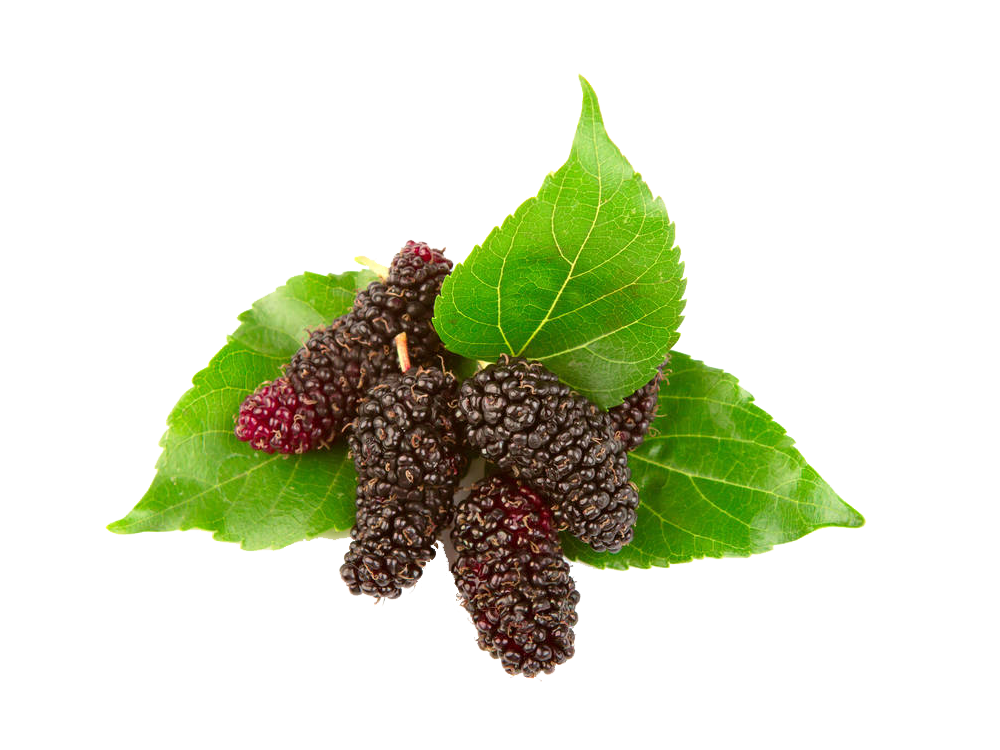Mulberry – 10 Best Facts About This Fruit

There are some things in this world that needs to be discovered to truly appreciate its beauty and value. Once discovered one would wonder how it was hidden all this time. One such nature’s hidden treasure is mulberry. Even though it closely resembles blackberries on the outside, mulberry is very different. What sets it apart is more than skin deep, and consuming this unique fruit, especially in tea form, is sure to provide that soothing natural all-around care. Also see the benefits of Moringa and Hibiscus.
1. What is Mulberry?
Mulberry comes from mulberry trees, which belongs to the mulberry family (Moraceae). The fruits, mulberry, arises from separate flowers without petals, unlike the “other” berries like raspberries and blackberries.
2. Anti-Oxidant content
Anti-oxidants – Mulberry leaves contain calcium, iron and zinc, and the antioxidants ascorbic acid and beta carotene. Antioxidants inhibit cellular damage caused by free radicals, which get created during food digestion and smoke and radiation exposure. Regularly consuming foods and drinks rich in beta carotene, such as mulberry tea, may reduce your risk of cancer, according to PubMed Health.
3. Cardiac health
Heart-Attack – Atherosclerosis occurs when the arteries narrow due to the build-up and hardening of plaque along the walls. Mulberry tea may help prevent that build-up due to the presence of astragalin and isoquercitrin compounds. Quercetin, a part of isoquercitrin is an antioxidant.
4. Blood sugar control
Blood Sugar – According to a study published in “The American Journal of Chinese Medicine” in 2012, mulberry lowers blood glucose due to its gallic acid content. Taking mulberry significantly curbed glucose spikes in the first two hours after consumption in a study published in “Diabetes Care” in 2007. The scientists concluded that mulberry could be useful both in the treatment of diabetes and in its prevention. In mulberry tea form, it is easier to get this benefit.
5. Cholesterol Control
Cholesterol – In a study published in 2013 in “BioMed Research International,” triglyceride and LDL cholesterol levels were lowered significantly in patients given 280 grams of mulberry leaf powder three times daily for three months. A study published in 2010 in the “Journal of Clinical Biochemistry and Nutrition” found similar results after giving participants 12 milligrams of mulberry leaf extract three times daily for three months. These studies suggest that regular heavy doses of this mulberry may be required to see significant results in lowering cholesterol and triglycerides. However, sipping some mulberry tea regularly may help prevent high cholesterol. The most important ingredients are ‘phytosterol’ and ‘gamma-amino acid’ which help to decrease cholesterol level in the blood and high blood pressure.
6. Anti-Inflammation
Anti-Inflammation – According to a study published in 2013 in the “Journal of Functional Foods,” mulberry leaf has been traditionally used to treat inflammation caused by chronic diseases, and the results of the study verify its anti-inflammatory effects. In vitro, scientists found mulberry leaf inhibits inflammatory agents in the body, cutting off the body’s inflammatory response. This effect was shown in rats in a study published in 2010 in “Phytotherapy Research.” Rats with induced paw edema were introduced to mulberry, which inhibited the formation of inflamed paw tissue. These studies suggest mulberry tea could be used to help ease pain by reducing inflammation.
7. Weight Control
Weight Control – Mulberry tea contains deoxynojirimycin, a compound that may inhibit the body’s absorption of carbohydrates. Carbohydrates are what can give us energy, but can lead to weight gain when absorbed too quickly. Mulberry tea could prove useful to those who are trying to lose weight.
8. Contains Vitamins
Mulberry, in tea form, contains vitamin A, which has an influential role in brain function, skin, heart, kidneys, lungs, vision, and immune system health. It’s wide reaching influences on overall health have earned it the reputation of being an anti-aging vitamin.
9. Anti-Bacterial
Anti-Bacterial – Mulberry tea could inhibit bacterial growth, helping alleviate or provide a natural cure for strep throat.
10. Caffeine Free
Caffeine Free – Herbal teas in general are caffeine free. Excess caffeine can lead to dehydration as well as affect gastrointestinal motility and gastric acid secretion. Your body can even come to become addicted to the stimulant.
Hope you found this useful. Check out my other posts as well.
Wishing you a happy and relaxing tea break!




